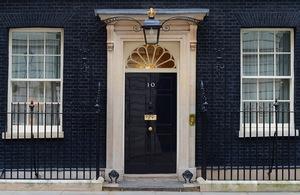PM to set out ambitious new approach to UK-China education

Prime Minister Theresa May is today set to announce a new package of exchange deals, partnerships and commercial contracts which bolster Britain’s already strong education relationship with China.
Chinese students already constitute the largest single source of overseas students in the UK, with 155,000 students currently in the UK worth an estimated £5 billion annually.
There are also now some 9,000 young British people studying and interning in China, with numbers up 60% since 2013.
Visiting the Chinese city of Wuhan today, which has the largest student population of any city in the world, the Prime Minister will announce details of a new approach covering pre-school through to post-grad education.
It includes:
- a new commitment to extend the UK-China Maths Teacher Exchange primary school programme for a further two years to 2020. This will enable an additional 140 primary teachers in England to benefit from further training in China. We will also expand the exchange programme to include up to 45 teachers in English secondary schools. The pioneering scheme involves English teachers visiting China for two weeks and Chinese teachers visiting England for two weeks, enabling schools to experience world-class maths teaching in English classrooms. The exchange programme also supports our work to take the total number of English schools benefitting from the East-Asian style maths Teaching for Mastery programme to 11,000 by 2023
- an agreement to facilitate joint training of pre-school staff in the UK and China
- improved UK-China information-sharing on vocational education through more study exchanges
- the launch of a new “English is GREAT” campaign, promoting proficiency in English for more people in China. There are over 300 million people learning English in China. The campaign will support individuals in improving their language proficiency as a means to achieve their own professional and personal ambitions – and to provide significant commercial opportunities for the UK by opening up a market worth over $2 billion a year. This will echo the UK-Mandarin Excellence Programme, launched in 2016 and which aims to have 5000 secondary school pupils in the UK fluent in Mandarin by 2020
The Prime Minister will also welcome a major new package of commercial deliverables in the education sector – reinforcing the UK’s position as a global leader in this field.
Education deals totalling more than £550m will be announced as part of the visit, creating over 800 jobs in the UK.
They include a £75m export win for the UK’s biggest childcare provider Busy Bees, who will open 20 new nurseries across China along with their Chinese stakeholder, Oriental Cambridge Education Group.
Minister Nick Gibb highlighted the successful maths teacher exchange we have had with China since 2014 – improving maths teaching in primary schools, and that the Prime minister’s announcement was an extension of that.
The Prime Minister said:
The close ties between the UK and China are reflected in our relationship on education. More than 150,000 Chinese students study at the UK’s world-leading institutions and make a significant contribution to our academic life.The agreements we have signed today will build on that and enable more children and more young people than ever to share their ideas about our two great nations.And by teaching children to speak our languages we will ensure that our Golden Era of co-operation will endure for generations to come.
Education Secretary Damian Hinds said:
Standards are rising in our schools, with 1.9 million more children in good or outstanding schools than in 2010 and nine out of ten schools given this rating at their last inspection. We want to build on this success, to ensure all pupils can access a world-class education that inspires them to make the most of their lives, no matter where they live or their background.Mandarin is the most spoken language in the world, so this partnership will play a crucial role in teaching pupils the knowledge and skills they need to succeed in an increasingly global economy. By opening up these opportunities to more young people, we can help to build a Britain that is fit for the future.











Responses